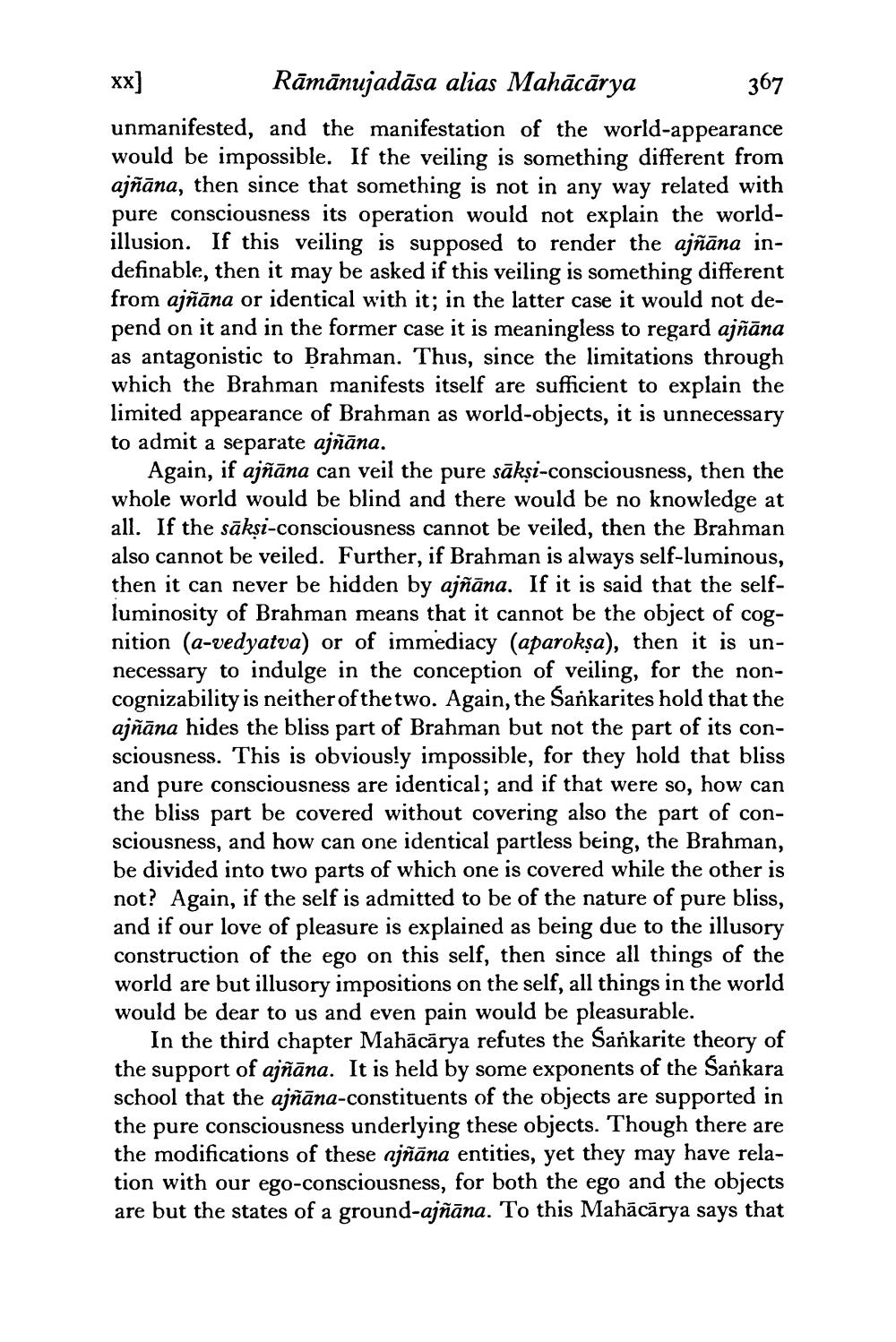________________
xx]
Rāmānujadāsa alias Mahācārya 367 unmanifested, and the manifestation of the world-appearance would be impossible. If the veiling is something different from ajñāna, then since that something is not in any way related with pure consciousness its operation would not explain the worldillusion. If this veiling is supposed to render the ajñāna indefinable, then it may be asked if this veiling is something different from ajñāna or identical with it; in the latter case it would not depend on it and in the former case it is meaningless to regard ajñāna as antagonistic to Brahman. Thus, since the limitations through which the Brahman manifests itself are sufficient to explain the limited appearance of Brahman as world-objects, it is unnecessary to admit a separate ajñāna.
Again, if ajñāna can veil the pure sākṣi-consciousness, then the whole world would be blind and there would be no knowledge at all. If the sākṣi-consciousness cannot be veiled, then the Brahman also cannot be veiled. Further, if Brahman is always self-luminous, then it can never be hidden by ajñāna. If it is said that the selfluminosity of Brahman means that it cannot be the object of cognition (a-vedyatva) or of immediacy (aparokşa), then it is unnecessary to indulge in the conception of veiling, for the noncognizability is neither of the two. Again, the Sankarites hold that the ajñāna hides the bliss part of Brahman but not the part of its consciousness. This is obviously impossible, for they hold that bliss and pure consciousness are identical; and if that were so, how can the bliss part be covered without covering also the part of consciousness, and how can one identical partless being, the Brahman, be divided into two parts of which one is covered while the other is not? Again, if the self is admitted to be of the nature of pure bliss, and if our love of pleasure is explained as being due to the illusory construction of the ego on this self, then since all things of the world are but illusory impositions on the self, all things in the world would be dear to us and even pain would be pleasurable.
In the third chapter Mahācārya refutes the Sankarite theory of the support of ajñāna. It is held by some exponents of the Sankara school that the ajñāna-constituents of the objects are supported in the pure consciousness underlying these objects. Though there are the modifications of these ajñāna entities, yet they may have relation with our ego-consciousness, for both the ego and the objects are but the states of a ground-ajñāna. To this Mahācārya says that




